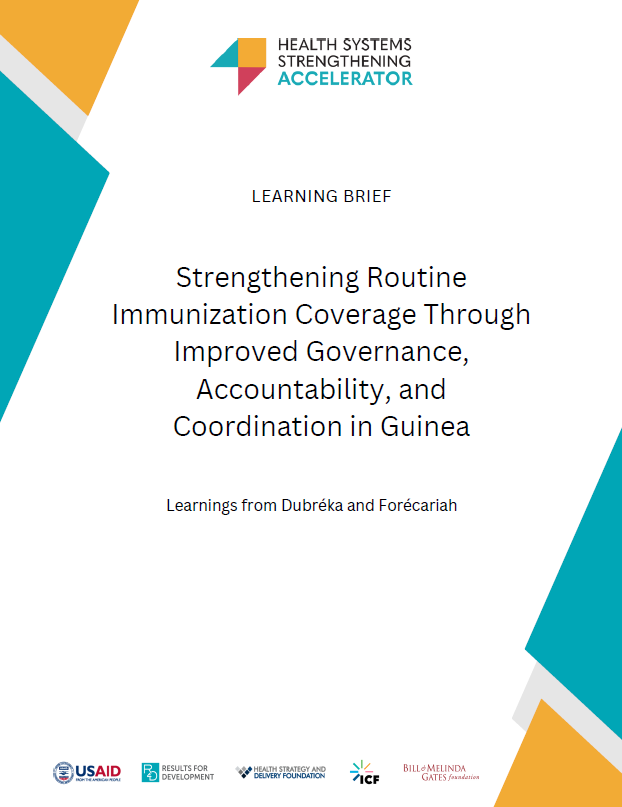
Despite efforts from the Guinean Government and its partners, the country has yet to make progress in improving routine immunization coverage since the Ebola outbreaks in 2014-2016, with progress further disrupted by the COVID-19 pandemic.
This learning brief assesses how the Accelerator’s immunization activities strengthened Guinea’s routine immunization program through improved governance, accountability, and coordination.
From 2019-2023, the USAID-funded Health Systems Strengthening Accelerator facilitated a co-creation process to support Guinea’s Ministry of Health (MoH) to implement the National Community Health Policy, unveiled in 2018 in response to longstanding health system challenges. Leveraging the Accelerator’s ongoing work with the MoH and its regional expertise and experience supporting health systems initiatives in Guinea, the Accelerator was well positioned to support Guinea’s efforts to reach zero-dose and under-immunized children in low coverage areas – an effort that is also well aligned with Gavi’s new five-year strategy, “Gavi 5.0,” to ensure equitable and sustainable use of vaccines by 2025[1].
[1] Organization, W. H. (2022). Immunization, Vaccines and Biologicals. Retrieved from The WHO Immunization Data Portal: Providing access to important immunization data and insights: https://www.who.int/teams/immunization-vaccines-and-biologicals/immunization-analysis-and-insights/global-monitoring/data-statistics-and-graphics.
Authors: Seyni Mbaye, Isabeaux Kennedy Mitton, Mariama Kouyaté, Eric W. Djimeu, Laurel Hatt, and Lior Miller
Date: April 2024




